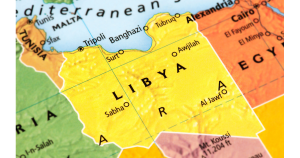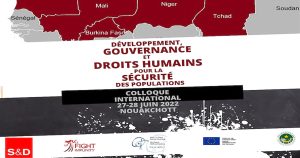La Repubblica, 27 April 2022
In an interview with journalist Giovanna Casadio published today in La Repubblica, Senator and founder of No Peace Without Justice (NPWJ), Emma Bonino spoke about the conflict in Ukraine and the responsibilities to which Putin and the Russian army are accountable. Bonino told of how the International Criminal Court (ICC), whose statute she helped write, is moving to ensure that the many crimes committed on Ukrainian soil do not go unpunished.
The fact that, immediately after the invasion, a resolution condemning Moscow’s aggression against Ukraine was passed by a vast majority (only five countries opposed, including Russia) at the UN General Assembly and complemented by the solid and essential support shown by no less than 39 states through the referral of the Ukrainian situation to the ICC, was highlighted by the Hague Courts swift reaction in opening an investigation and beginning to gather evidence of the crimes in order to judge the perpetrator.
Although Ukraine is not a state party to the International Criminal Court (it signed – but never ratified – the Rome Statute in 2000), in 2014, it activated the Court’s jurisdiction through a statutory rule that outlines how a non-state party can, through a formal declaration deposited with the Court’s Registry, accept the ICC’s jurisdiction and cooperate with it: it was precisely this procedure that allowed the ICC’s attorney general, Khan, to open an investigation.
As Bonino points out in her interview, new technologies make it possible to document in real-time what is happening in cities such as Bucha or Mariupol. Thus, it is possible to collect reliable evidence of what can only be defined, for all intents and purposes, as ‘war crimes’.
State referrals demonstrate a firm international backing in support of Ukraine, but even more so, that Putin can and will be held personally responsible for the violations committed by Russian forces. “Putin will be tried. He will not go unpunished, just as Milosevic did not,” Bonino stated. However, suppose it seems complicated to obtain an international arrest warrant. Bonino continues, “it also seemed so for the all-powerful Milosevic at the time of the ad hoc tribunal for the former Yugoslavia and his accomplices Karadzic and Mladic. Well, the former died in a prison in the Hague, and the latter remained in jail for life. The problem is not issuing the arrest warrant but executing it. Putin can escape it, but not forever.”
With this in mind, NPWJ firstly urges those states that have not yet done so to join Ukraine in its proceedings against the Russian Federation at the International Court of Justice, demanding the Court rule that Russia had no legal basis for taking action against Ukraine. In addition, NPWJ wishes to draw your attention to the next plenary session of the European Parliament, a debate in which the Council and the Commission will express their official positions on the fight against impunity for war crimes in Ukraine. In short, there will be no impunity for crimes committed on the territory of Kyiv, as there can be no peace without justice.




